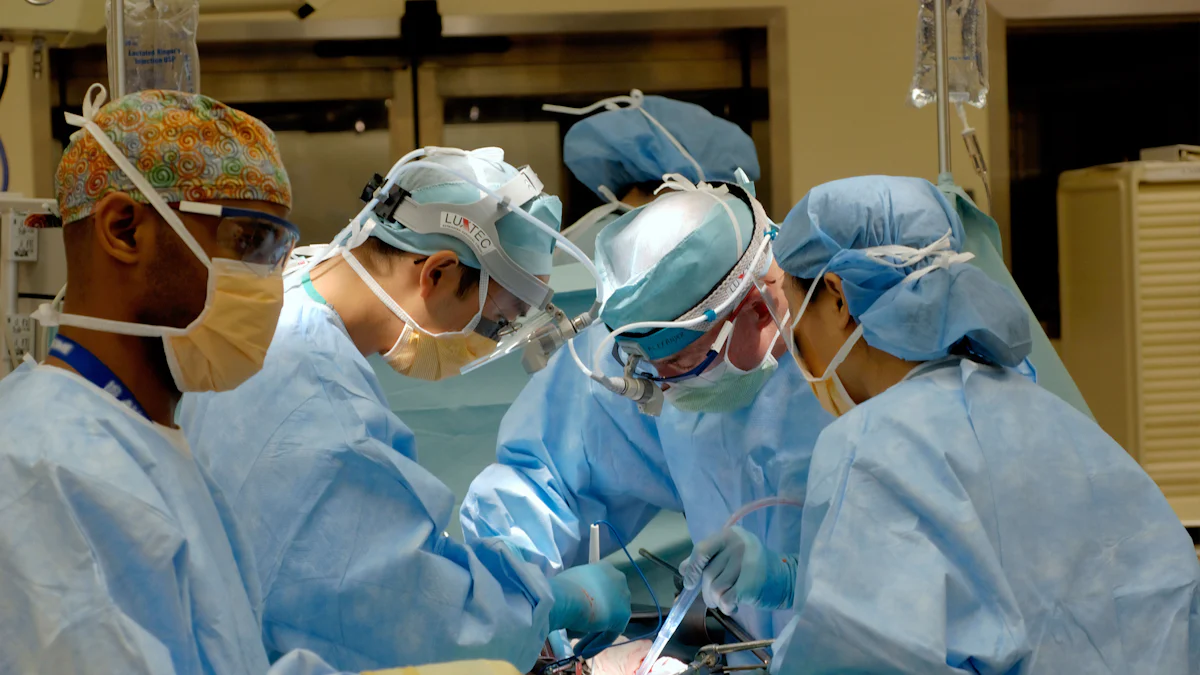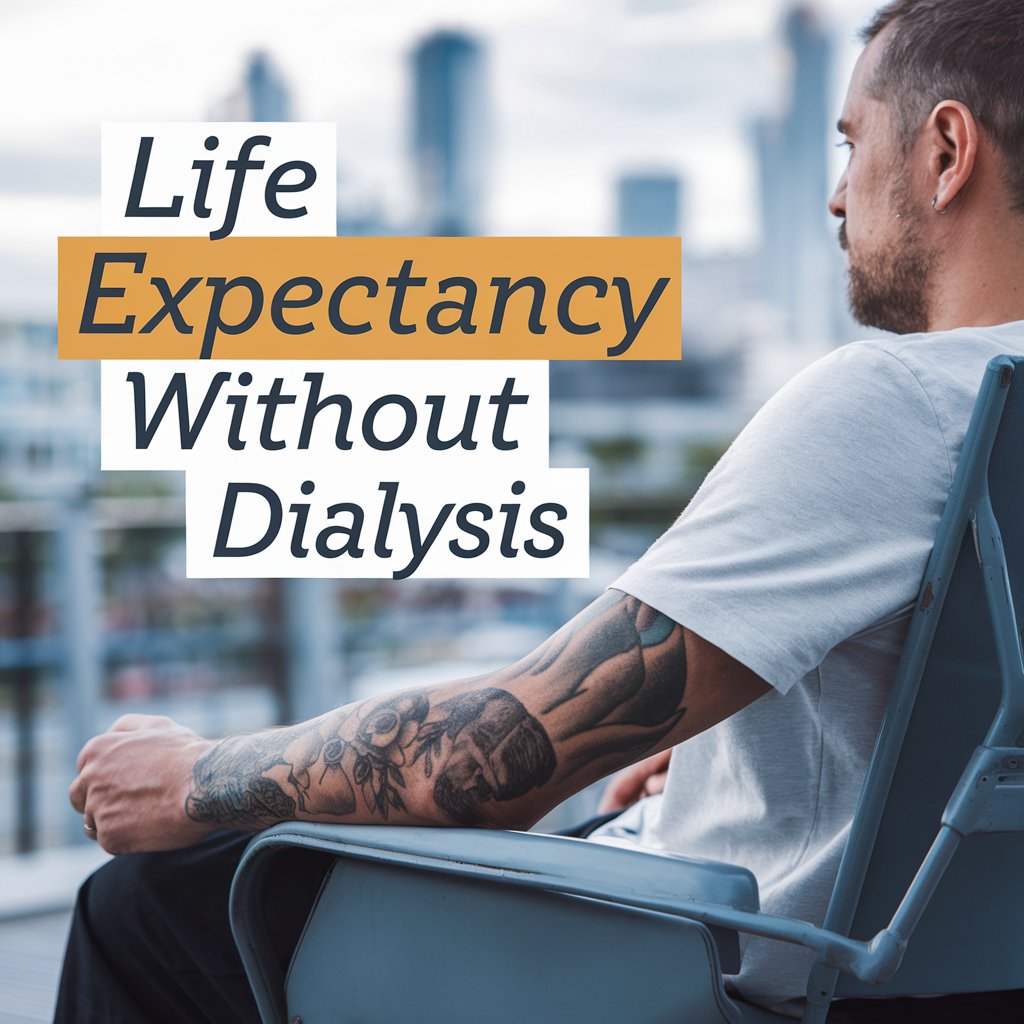Understanding life expectancy without dialysis can be hard. It’s important for those with kidney problems. Without dialysis, harmful stuff builds up in the body. This can cause big health problems. Some people might live weeks or months, based on their health.
Looking at options like kidney transplants can give hope. For example, a 55-year-old with
Understanding life expectancy without dialysis can be hard. It’s important for those with kidney problems. Without dialysis, harmful stuff builds up in the body. This can cause big health problems. Some people might live weeks or months, based on their health.
Looking at options like kidney transplants can give hope. For example, a 55-year-old with a transplant might live 15 years. On dialysis, they might live only 5 years. Knowing this helps us make smart choices and find the best care.
Life Expectancy Without Dialysis

When I first heard about life expectancy without dialysis, I felt confused. Living without this treatment seemed scary. But learning more helps us make smart choices.
1. Understanding the Basics
Without dialysis, bad stuff builds up in the blood. This is called uremia and can cause big health problems. Some people live weeks or months without it. How long they live depends on their health and kidney function.
2. Factors Influencing Life Expectancy
Many things affect how long someone lives without dialysis:
- Age and General Health: Younger people with fewer health issues might live longer.
- Kidney Function: Those with some kidney function may have a longer life.
- Supportive Care: Palliative care can improve life quality and extend survival.
3. Research Insights
Studies show different results for those who skip dialysis. Older adults often start dialysis but sometimes regret it. Research shows that for those over 75, dialysis may not help much more than other care options. It’s important to think about personal needs and wishes.
“Patients who stop dialysis live shorter than other hospice patients,” says a study on hospice care. This shows the need for personalized care plans based on each person’s outlook.
4. Making Informed Choices
Deciding on dialysis means thinking about benefits versus life quality impact. Some with advanced kidney disease choose no dialysis and still enjoy good life quality for years, showing conservative management can work well for some.
5. Inspirational Stories
I find hope in stories of people who do well despite challenges. One story is about Gerald, an elderly patient with kidney disease. His case shows why it’s important to talk about treatment options carefully. By looking at his situation, Gerald’s team made a plan that focused on his well-being.
How long can you live with 10% kidney function without dialysis?
Living with only 10% kidney function is scary. I felt worried when I first learned about it. But knowing more can help us feel hopeful.
1. Understanding the Situation
With 10% kidney function, kidneys can’t filter waste well. This causes uremia, where toxins build up in blood. Without dialysis, life expectancy changes a lot. Some people live weeks; others might last months or years.
2. Factors That Influence Survival
Many things affect how long someone lives:
- Overall Health: Being healthier can help survival chances.
- Age: Younger people might live longer.
- Supportive Care: Palliative care helps improve life quality and extends life.
3. Insights from Research
Research gives helpful information:
- Conservatively Managed Patients: Studies show some patients live years without dialysis. They often feel better mentally and stay healthy for a while.
- Elderly Patients: Data shows elderly patients without dialysis live about 16 months on average. Around 53% survive one year after starting renal supportive care.
“Patients could survive several years and felt better mentally,” says a study on conservatively managed patients.
4. Making Empowered Choices
Choosing no dialysis needs careful thought. It’s about balancing life quality with treatments. Many find strength in stories of those who do well despite problems. These stories inspire us to make choices that match our values and wishes.
By understanding these factors, we can face this journey bravely and hopefully.
Can you live with 15% kidney function?
Having 15% kidney function can be scary. I felt worried when I first heard about it. But learning more can help us feel better and hopeful.
1. Understanding the Basics
With 15% kidney function, kidneys can’t clean waste well. This is called severe kidney trouble, usually measured at 15–29 mL/min. It’s important to know life is still possible with these issues.
2. Factors That Affect Life Expectancy
Many things affect how long someone can live with 15% kidney function:
- Overall Health: Being healthy in other ways helps you live longer.
- Age: Younger people might do better.
- Supportive Care: Getting palliative care can make life better and longer.
3. Insights from Research
Research gives useful information:
- Conservative Management: Some studies say patients can live years without dialysis. They often feel happier and stay healthy for a while.
- Elderly Patients: Data shows older people without dialysis may live about 16 months on average. Around 53% survive one year after starting supportive care.
“Patients could survive several years and felt better mentally,” says a study on conservatively managed patients.
4. Making Empowered Choices
Choosing no dialysis needs careful thought. It’s about balancing life quality with treatments available. Many find hope in stories of those who do well despite problems. These stories inspire us to make choices that fit our values and wishes.
By understanding these things, we can face this journey bravely and hopefully.
What is the lowest GFR you can live with?
When I first heard about GFR, it seemed confusing. Knowing GFR helps us understand kidney health. A low GFR means kidneys can’t filter waste well. But knowing how low you can go gives hope.
1. Understanding GFR Levels
GFR shows how well kidneys clean blood. Normal is 90 to 120 mL/min. Below 15 mL/min means severe kidney trouble. At this point, dialysis or a transplant is often needed. But some live with less than 15 by careful watching and lifestyle changes.
2. Factors Affecting Survival with Low GFR
Several things affect living with low GFR:
- Overall Health: Being healthy in other ways helps.
- Age: Younger people might handle low GFR better.
- Supportive Care: Palliative care can improve life quality and lengthen life.
3. Insights from Research
Research gives helpful insights:
- Conservative Management: Some studies show people live years without dialysis, even with low GFR. They feel better mentally and stay healthy for a while.
- Elderly Patients: Data shows older adults without dialysis may live about 16 months on average. Around 53% survive one year after starting supportive care.
“Patients could survive several years and felt better mentally,” says a study on conservatively managed patients.
4. Making Empowered Choices
Living with low GFR needs careful thought. It’s about balancing life quality with treatments available. Many find hope in stories of those who do well despite problems. These stories inspire us to make choices that fit our values and wishes.
By understanding these factors, we can face this journey bravely and hopefully.
Talking to Healthcare Experts
Talking about kidney health can be confusing. I felt lost at first. But experts help us make good choices.
1. Learning Different Ways
Kidney doctors use different ways to help us decide on dialysis. They listen to what we want and need. This makes me feel heard and important.
“Listening is key,” says a kidney doctor. Our voices matter in the plan.
2. Building Trust
Good relationships with doctors build trust. Asking questions helps us feel sure about our choices.
3. Looking at Choices Together
Doctors show us different treatment paths. They explain the good and bad of each choice. Knowing this helps us pick better options.
4. Focusing on Personal Care
Everyone’s path is special. Kidney doctors give advice that fits our needs best, making sure our health plans match our life goals.
5. Giving Hope
Doctors give more than just advice; they give hope too. Their support helps us face problems bravely.
By talking to healthcare experts, we learn a lot and get support, helping us move forward with confidence and hope.
Thinking about life without dialysis, I see how important smart choices are. Some people live well for years without it. This shows life can still be good. Knowing what matters to you and how treatments work helps decide. I urge everyone to look at choices and get help from doctors. Good care is key, and working together makes it happen. Let’s keep learning and pushing for better kidney health answers.

